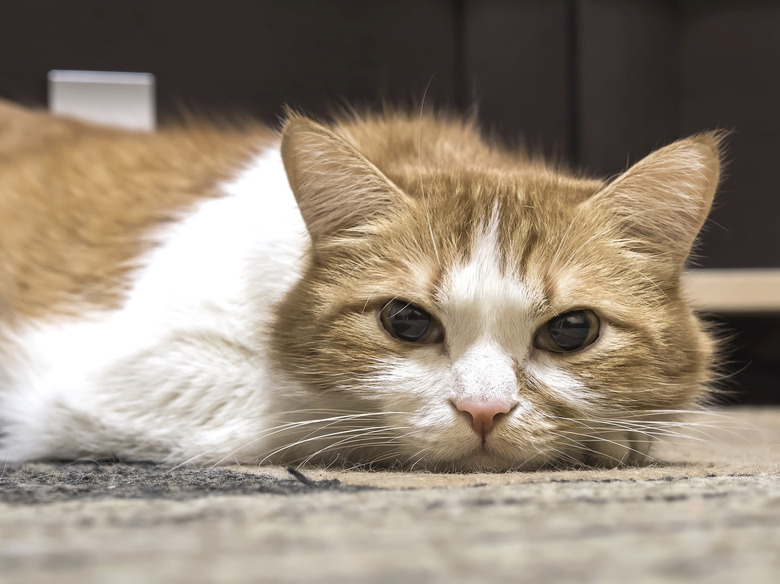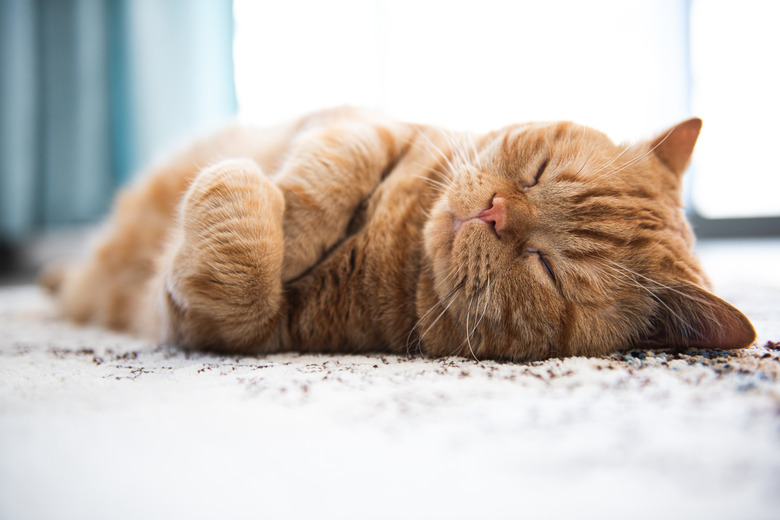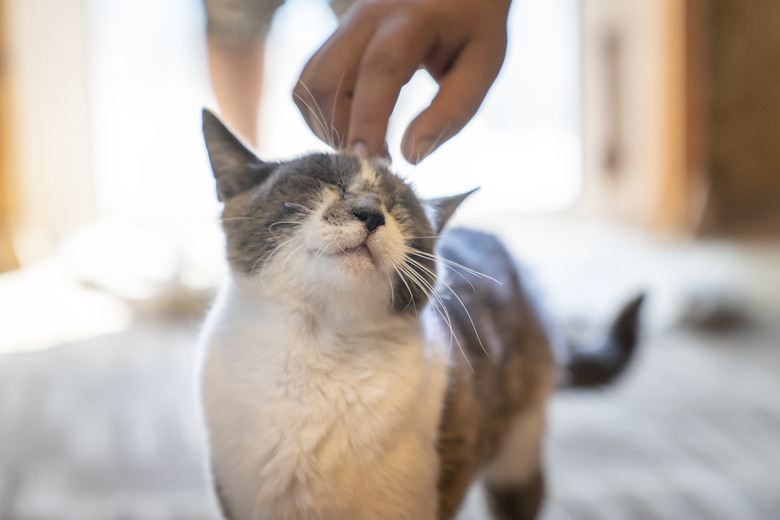Panacur Liquid For Cats
It's not unusual for cats to become infected with various types of parasites, especially if they use the same litterbox as others or roam freely outdoors. Panacur liquid for cats — a common brand name for the drug fenbendazole — kills and helps safely expel a wide variety of internal parasites, including hookworms, roundworms, whipworms, and some types of tapeworms without being absorbed into your cat's system. The drug also works for whipworms, lungworms, and giardia.
What is Panacur?
What is Panacur?
Panacur is a type of anti-parasitic known as an anthelmintic — a drug that eradicates parasitic worms (helminths) and other internal parasites by either stunning or killing them. Because the medicine isn't absorbed into the cat's body, Panacur is safe for kittens and comes with a low risk of overdose.
Panacur is effective, but it isn't a "one and done" solution to parasitic problems. You must dose your cat for at least three days in a row — and up to two weeks for some parasites — to be effective. The protocol requires a second series of doses three weeks later and again in three months to totally eliminate all growth phases of parasites, such as whipworms.
Panacur comes in two forms: granules that you can sprinkle on your cat's food or a liquid suspension formula that you can administer with an oral syringe. Because cats can be so finicky about medicine on their food, it's often easiest to use the Panacur liquid for cats.
Panacur for cats instructions
Panacur for cats instructions
Although Panacur liquid is usually administered to your cat using an oral syringe, try a small test dose on food first. If your cat eats a small amount of wet food with a few drops of Panacur mixed into it, you can simply mix the dose into food every day. This method isn't suitable for multi-cat households unless you securely separate your cats while eating so that you know each got its specific dose.
To administer Panacur to your cat via syringe, wrap the cat in a towel with only his head showing. Place him on your lap if you're doing it alone or have an assistant hold him securely on top of a table or another secure, flat surface.
Steady your cat's head with your non-dominant hand and insert the end of the syringe between the cheek and teeth in your cat's mouth. Slowly release the medicine using the syringe plunger, allowing your cat time to swallow. If your cat spits out some of the medicine, don't try to re-administer extra medicine. Don't tilt your cat's head backward or you might cause him to gag or inhale part of it.
Watch for symptoms
Watch for symptoms
Although digestive upset can be a sign of a parasitic infection, you'll want to pay attention to any new symptoms of gastrointestinal distress. Greater than usual salivation, vomiting, or diarrhea might occur if your cat has a sensitive stomach.
Make sure to give your cat a treat or food after dosing to prevent the medication from upsetting her stomach. Nausea, diarrhea, or vomiting after taking this medication is usually not serious. Do not discontinue use because your pet got sick afterward. Instead, contact your veterinarian for suggestions, as a single dose of the formula is not effective in removing parasites.
Sometimes, dying parasites can release substances that can cause an allergic reaction. Call your vet immediately if your cat's face swells or if your cat begins wheezing, passes out, or has itchiness, hives, shock, or other signs of severe allergies.
Follow directions precisely
Follow directions precisely
Make sure you carefully follow your veterinarian's instructions and know the exact amount and times prescribed. Store the medication at room temperature in a tightly sealed container away from direct light.
Your veterinarian will let you know when to schedule a return visit for follow-up. This allows your cat's health care professional to test and make sure that all the targeted parasites are gone. Check with the vet before administering to young cats to make sure it is the best dewormer for kittens.


